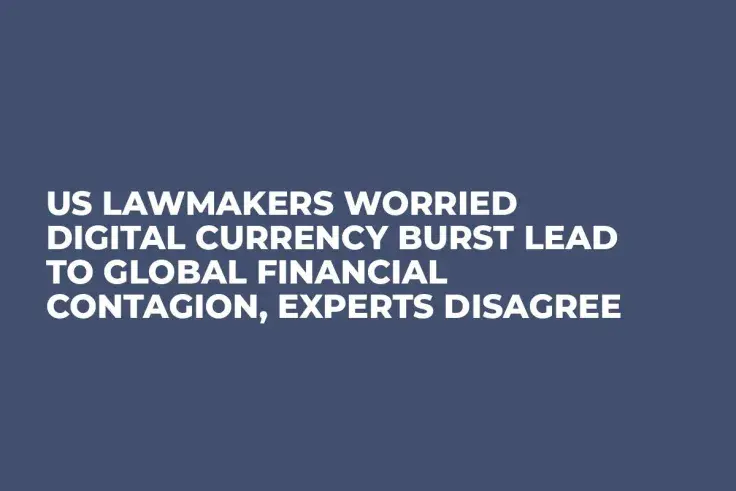
Earlier today, CryptoComes reported that Congressional Republicans are increasingly diverging from their anti-regulatory stance, and are beginning to support efforts by Democrats to regulate Bitcoin and other digital currencies. Some lawmakers have attributed their shifting views to the possibility of a cryptocurrency collapse threatening the global financial system.
Republican Congressman Dave Brat of the House Freedom Caucus, a staunchly conservative group, said:
I‘m a total free-marketer, so I don’t want to regulate. But if it’s a currency that could destabilize the whole economy, you’re going to have that conversation.
Size matters
Concerns about the crypto market tanking the economy seem overblown in light of the relative size of each. The global crypto market cap currently stands at $500 bln, according to Coinmarketcap.com. On the other hand, the global capitals market (stocks and bonds) exceeds $118 tln, according to McKinsey. Meanwhile, the US GDP stands at $19.7 tln.
By comparison, the dot-com bubble peaked at around $3 tln, according to CNN Money. In inflation-adjusted terms, that would be equivalent to $4.4 tln today. While the $500 bln crypto market cap is undoubtedly huge, it’s barely a tenth the size of dot-coms in their year 2000 heyday. The dot-com bubble was large enough to tank the entire market, and did, but it’s unlikely that a digital currency bust could do the same.
Systemic risks?
BlackRock Global Chief Investment Strategist Richard Turnill does consider the cryptocurrency market a bubble, saying “I look at the charts, and to me, that looks pretty scary.” But he doesn’t think it rises to the risk of a systemic threat:
There’s no evidence that if that price went to zero tomorrow that there’d be any broader financial implication over time.
Garrick Hileman at the University of Cambridge agrees, telling Business Insider:
There haven't been enough people who hold them [cryptocurrencies] or institutions that own them or enough credit or leverage used. Having said that, I can imagine scenarios, although I'm not predicting this, where they do become systemically important.
In fact, a survey from London’s Center for Macroeconomics reported that 75 percent of top European economists do not think Bitcoin poses a threat to the financial system’s stability, according to Fortune.
 Arman Shirinyan
Arman Shirinyan Yuri Molchan
Yuri Molchan Godfrey Benjamin
Godfrey Benjamin Tomiwabold Olajide
Tomiwabold Olajide